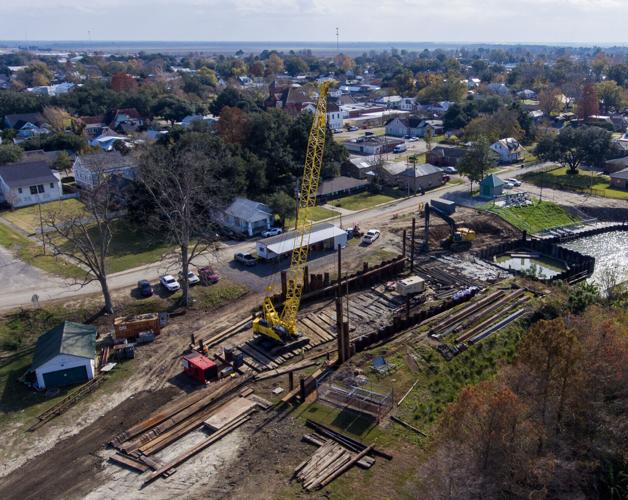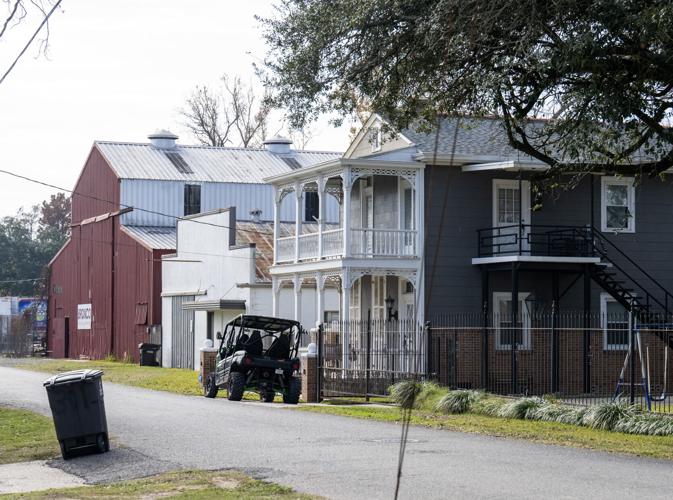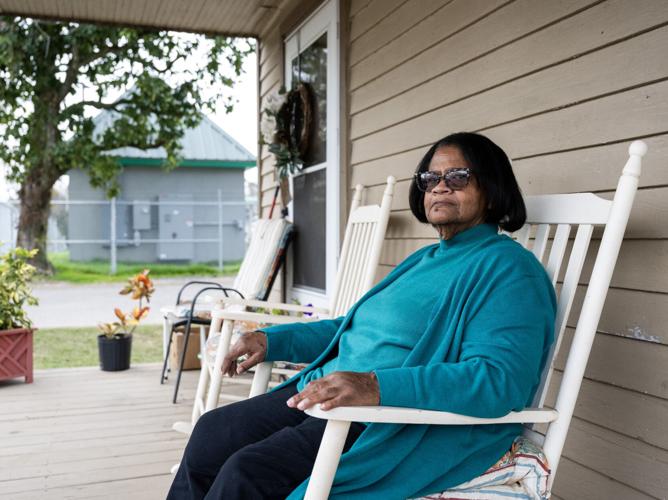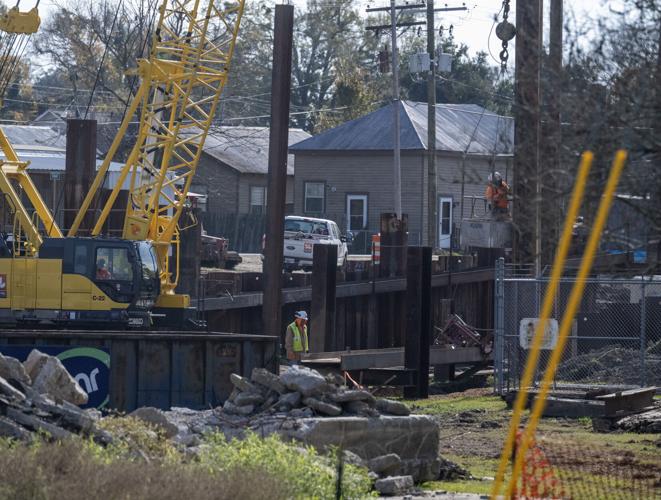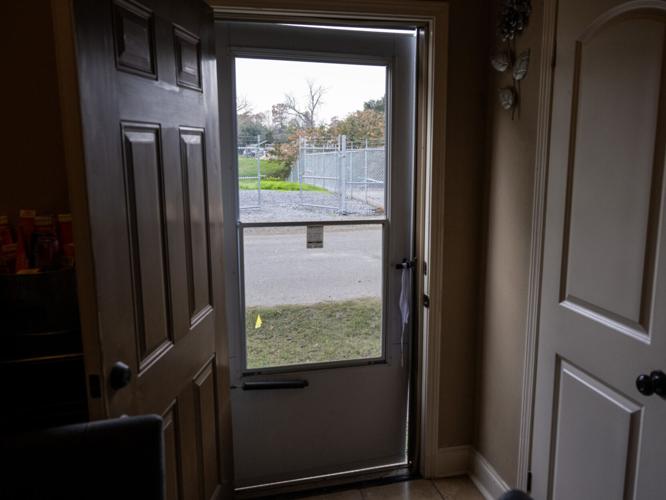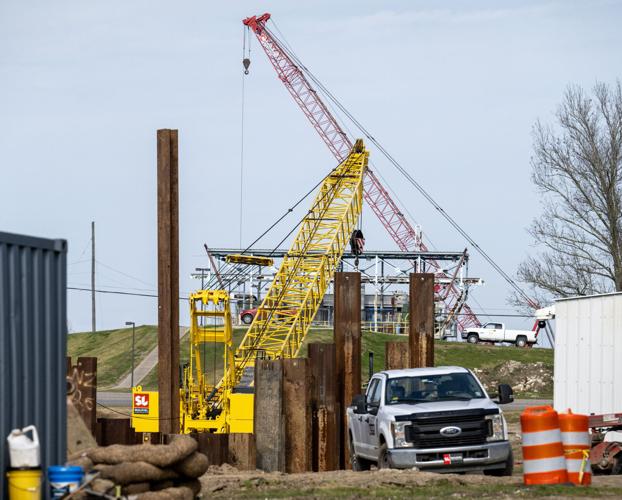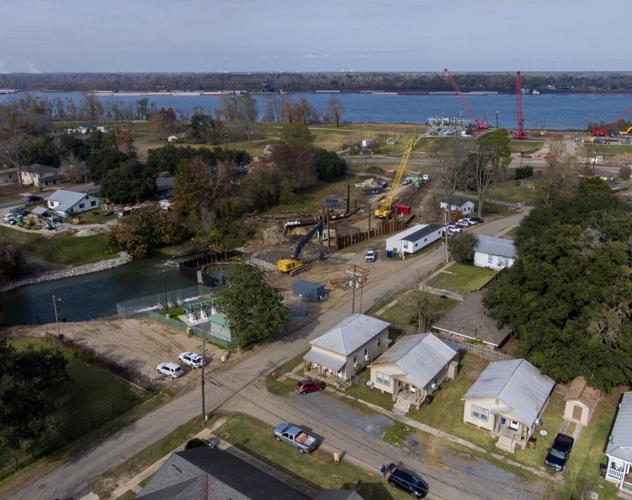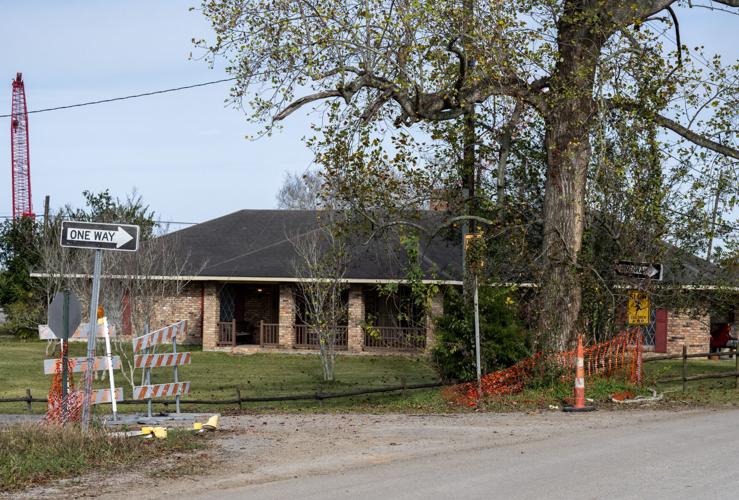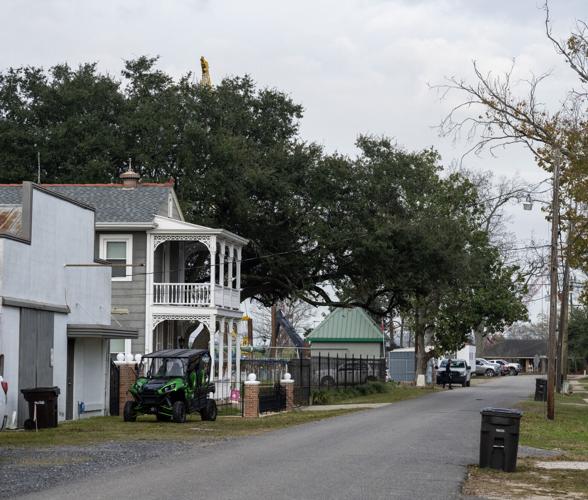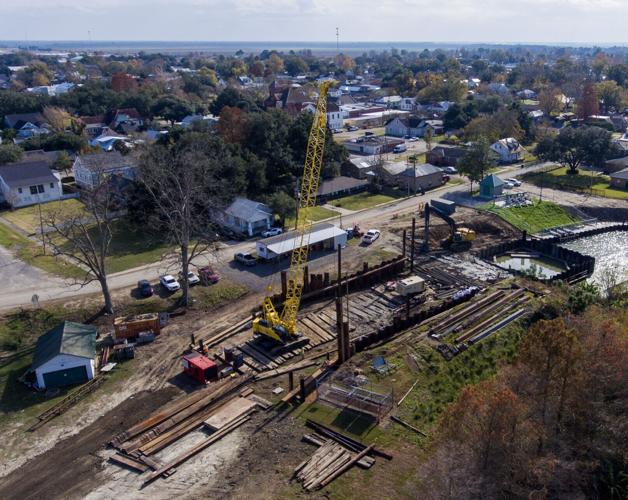Rita Washington moved to her rental house just outside Donaldsonville's historic district about two years ago to find a quiet street in her retirement.
Living across the street from Bayou Lafourche, the 71-year-old Washington has found just the opposite — life at virtually ground zero of a dusty and loud construction site on the waterway that is tied to a new pump station being built on the Mississippi River batture a few blocks from her house.
The new station will triple the capacity of pumps that send fresh water from the Mississippi down Bayou Lafourche.
Increased pumping is needed to halt saltwater intrusion in coastal marshes, to ensure a fresh supply of drinking water for more than 300,000 people in the Houma and Thibodaux areas and beyond, and also to provide water to Port Fourchon, state officials say.
Begun late last year, the construction project has required regular pile-driving that is so loud and emits so much vibration that residents like Washington have complained about the incessant, unbearable noise and shaking from a type of pile-driving vibration hammer that is rattling them and threatening the integrity of historic homes in the old city.
"The reason I moved here 'cause this is a quiet street," Washington said with exasperation. "I'm not working nowhere or nothing. I'm going to be home all day, so I need that peace, you know."
While a whole other phase of pile-driving will be necessary on the river batture behind the levee, the current phase next to the historic district has ratcheted up frustrations. Contractors have been driving sheet-piles along the bayou for a river discharge structure in the waterway, district officials have said.
Some residents say they have measured sound at 90 to 100 decibels. That's above the general city limit of 85 decibels during daytime and evening hours until 10 p.m. The city law, however, exempts sanctioned government activities.
Washington said the noise and the vibrations shattered the glass in her back screen door and caused cracks in her rental home and made life unbearable in her retirement.
Residents who live in the historic district nearby have aired concerns about already cracking plaster walls and columns and the impact on the historic homes' brick pier foundations.
See shaking bricks: https://youtu.be/WQa4S3sm4jI
John Beck Jr., who lives near Washington and backs up to the Bayou Lafourche construction, has made videos of the vibration's impact inside and outside his home built in the 1850s: a rattling stairway, a humming outdoor brick wall, a shaking chandelier and clinking wine glasses hanging in an overhead rack.
Beck claims the vibration that he documented in his recently built outdoor brick wall doesn't bode well for his three-story home's brick foundation.
"Brickwork is vibrating. I'm not an engineer, but if brick is vibrating and making a buzzing sound, you've lost all integrity of that brick foundation," Beck asserted.
A representative for the pump station contractor, Sealevel Construction, told city officials on Dec. 18 he wasn't aware of any sound measurement by the company as high as what residents reported.
A U.S. Army Corps of Engineers permit for the work doesn't hold the company to a decibel level, but Corps officials said the company voluntarily agreed to a Corps vibration standard for lower Mississippi levee work that is protective of historic homes.
Beck, Washington and other residents have complained that the Thibodaux-based state entity behind the project, the Bayou Lafourche Fresh Water District, and contractor Sealevel haven't been responsive to their concerns.
In the era of mass cellphone text messages, neither the district nor the contractor has even given them the courtesy of advance notice when pile-driving would happen, residents say.
Hear the noise in John Beck Jr.'s backyard https://youtube.com/shorts/1pcWtrkyIKY?feature=share
Though water district officials say they have been asking Sealevel to do what it can to mitigate the impact and recently asked the company to start advanced notifications, residents have called on Donaldsonville’s city leaders to take a more aggressive posture.
Earlier this month, the council barred pile-driving from 5 p.m. Fridays to Monday mornings. Last week, one councilman asked the city attorney to explore halting the project entirely until the freshwater district comes to the table to mitigate residents' concerns about home damage and lost quality of life.
"I'm just saying to get them here, to get some representative here to be able answer some of the questions, to hear the concerns of people," the councilman, the Rev. Charles Brown, said. "If they know the project is shut down and they got to get it running, they'll come here in a day or two."
No district representative showed up for the Dec. 18 council meeting at City Hall; the district was meeting the same night.
A project manager for Sealevel was there but couldn't answer or was noncommittal to several questions from councilmen and upset residents, who pitched different pile-driving methods to ease noise and vibration.
Low flow, bad water
After Hurricane Gustav struck in 2008, a combination of low flow, storm-stirred muck, toxic hurricane runoff and waterway blockages fouled Bayou Lafourche's water and forced boil-water advisories for a month, sparking a state drive to boost flow from the Mississippi.
The first step was spending millions to dredge a long stretch of the bayou from Donaldsonville south so the clogged bayou waterway could handle more river water. The second step is adding a second pump station at Donaldsonville next to the first one built in the 1950s.
While the dredging helped Donaldsonville's stretch of the bayou and mitigated potential flooding impacts from increased river pumping, the new $96 million pump station construction behind the levee doesn't directly benefit the city.
Though the city relies on water pumped from the Mississippi for its drinking supply, Donaldsonville didn't have the stagnation problems cities farther down the bayou had.
Dustin Rabalais, executive director of the district, said the district and its contractor have known for years this work would be disruptive. They have been monitoring residents' concerns and have the goal of minimizing the impact as much as possible but are also keeping in mind the overall goal.
"The critical need for potable water to the residents of Ascension, Assumption, Terrebonne and Lafourche parishes and the prevention of saltwater intrusion along coastal estuaries was weighted against the required construction activities," Rabalais said.
District officials said the new weekend limit on pile-driving isn't expected to slow the project's timeline.
Unexpected noise, vibration
A few years ago, the freshwater district went through a permitting process with the Corps of Engineers that considered vibration and noise impacts on the historic district. But city officials pointed out that process looked at the impact of the station after it was built and its pumps were running, not construction noise and vibration directly next to the historic district.
"The Fresh Water District should be more, I guess, considerate of the people in the neighborhood. I don't think that anyone envisioned the problems we're having with driving the sheet poles, but the noise is extremely, extremely loud," Mayor Leroy Sullivan said.
"I can't even image how it would feel to live in a house or be in a house where that noise was constantly going on and I had to stay there and listen to it along, with the vibration," he added.
Sullivan said he has video-recorded sounds he believes were well above 85 decibels.
See a shaking stairs: https://youtube.com/shorts/9li4sbsqS_Q?feature=share
Since the council meeting last week, the city attorney has opined that a complete halt of the project by the city probably wouldn't have legal authority and could trigger a quick suit to stop the action.
Sullivan said a final decision would be up to the council. As of Friday, water district officials hadn't responded to the city's request for a meeting, he said.
Sealevel officials said pile-driving inside the levee is expected to take another 90 workdays and will involve the shortest sections of sheet-pile that are expected to be the least disruptive. The actual time period, however, could be spread out over longer than three months.
After that, plenty of pile-driving still remains on the batture where the new station is going. A portion of Mississippi Street will be closed for six months in the second half of 2024 to install a discharge line that will come from the new pump station.
The entire project isn't expected to be finished and operating until October 2025.

